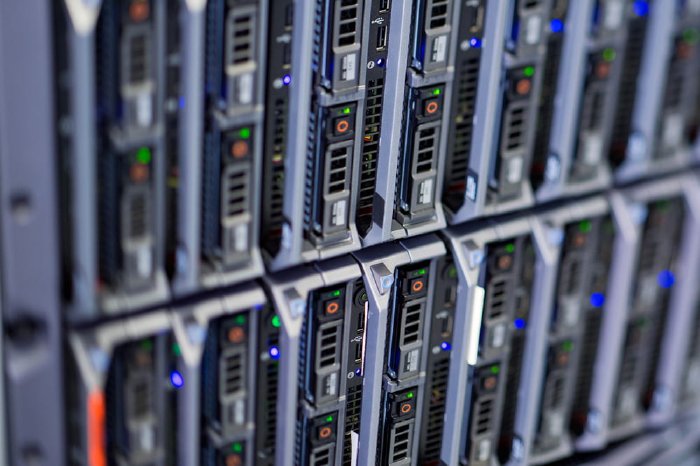The Blue Angel was the world’s first seal of environmental quality for data centres. As early as 2012, the DE-UZ-161 environmental label set out the requirements for that energy-efficient data centres have to fulfil; 2020 then saw the introduction of the supplementary DE-UZ-214 label for climate-friendly colocation data centres. The new update has now combined those two labels in a single environmental label, “Data Centres” (DE-UZ 228). Thomas Grüschow, data centre expert at TÜV SÜD Industrie Service GmbH, explains, “The consolidation now enables the ecolabel to be awarded both to data centre operators and to IT operators that use Blue Angel-certified data centres to provide their services.”
The new Blue Angel label can be issued to data centres whose building services equipment is operated in a particularly energy-efficient, climate-friendly and resource-conserving manner; whose operators have developed and are implementing a long-term strategy for increasing their data centres’ energy and resource efficiency; and who abide by transparency in their reporting. Concrete requirements include the establishment of an energy management system in accordance with DIN EN 50600-3-1, DIN EN ISO 50001 or EMAS III; use of waste heat in both the centre’s own and external buildings or facilities; reuse management for hardware, i.e. servers and storage devices, after the end of their service life in the data centre; and regular publication of key energy efficiency performance indicators such as power usage effectiveness (PUE), cooling efficiency ratio (CER) , energy reuse factor (ERF) and water usage effectiveness (WUE).
Thomas Grüschow is convinced that German federal authorities will play a trailblazing role in the implementation of the new Blue Angel environmental label for data centres. The coalition agreement of the current German government sets out the objective of gearing Germany’s data centres to the criteria of ecological sustainability and climate protection. As part of this, the requirements of the Blue Angel environmental label are to become mandatory not only for all centralised federal government data centres currently being established, but also for all IT procurement by the federal government. But the Blue Angel “Data Centres” label is also likely to play a role at state and municipal level. In May 2019, the conference of German state environmental ministers passed a resolution to draw up an ambitious and concrete savings target for reducing energy consumption in the information and communications technology (ITC) operations of individual states.
The German Environmental Agency warns that existing certificates based on the DE-UZ-161 and DE-UZ-214 labels will become invalid at the end of 2023. To continue their entitlement to carry the Blue Angel mark, data centre and IT operators will need to demonstrate that they also comply with the requirements of the new DE-UZ-228 label.
Experts from TÜV SÜD are listed as consultants and auditors (Zip file download, see Appendix B) for the Blue Angel “Data Centres“ label, and can provide consultancy or auditing services to support data centre and IT operators seeking to implement the new requirements. In addition, TÜV SÜD has a wealth of experience in testing and certification of data centres in accordance with DIN EN 50600 and ISO/IEC 22237 availability classes and the new sustainability requirements of DIN CLC/TS 50600-5-1, as well as in energy audits in accordance with DIN EN 16247 and energy management system certification in accordance with DIN EN ISO 50001 and EMAS.
Further Information
- on the Blue Angel “Data Centres” label is available from the German Environmental Agency
- on TÜV SÜD’s services related to data centres is available at www.tuvsud.com/datacenter.


